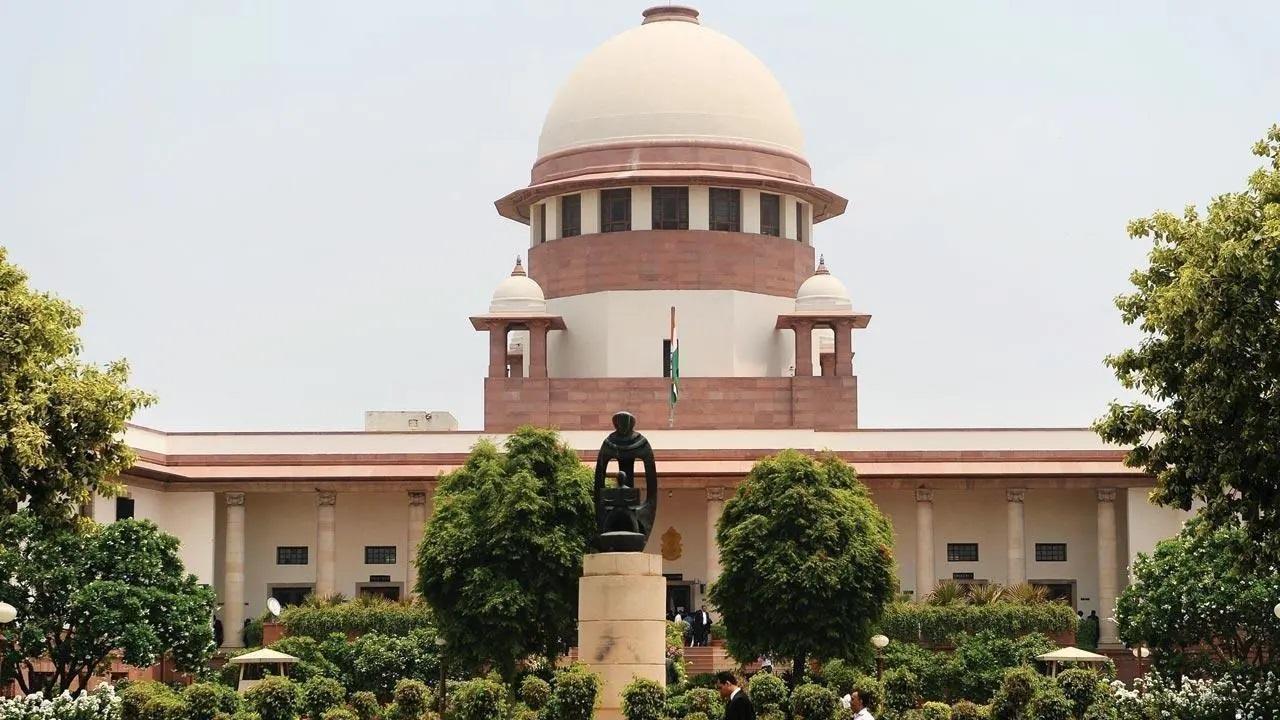A bench of Justices Aniruddha Bose and Vikram Nath sought a response from the Centre and tagged the plea along with similar or pending PILs

Supreme Court of India. File Pic
The Supreme Court on Monday issued notice to the Centre on a PIL seeking directions to the Centre to frame effective rules, regulations and guidelines to control population explosion.
ADVERTISEMENT
A bench of Justices Aniruddha Bose and Vikram Nath sought a response from the Centre and tagged the plea along with similar or pending PILs.
The order of the apex court came on a PIL filed by Firoz Bakht Ahmed, grandnephew of India's first Education Minister Maulana Abul Kalam Azad.
Earlier, the top court had sought a response from the Centre on the pleas filed by Devkinandan Thakur, advocate Ashwini Upadhyay and others.
In his plea, Ahmed stated that population explosion is the root cause of more than 50 per cent of problems in India.
Also Read: CJI UU Lalit recalls lawyers contribution in drafting Constitution, freedom struggle
The PIL sought directions to the Centre to ascertain the feasibility of making the 'Two-Child Law' as criteria for government jobs, aids and subsidies, right to vote, right to contest, right to property, right to free shelter, etc.
The PIL sought directions to the Centre to ascertain the feasibility of making the 'Two-Child Law' as criteria for government jobs, aids and subsidies, right to vote, right to contest, right to property, right to free shelter, etc.
"The government should declare the first Sunday of every month as Health Day in place of Polio Day to spread awareness on population explosion and provide contraceptive pill, condoms, vaccines, etc to EWS and BPL families, with polio vaccines," said the plea.
It added that as alternative relief, the petitioner has sought directions from the Law Commission of India to prepare a comprehensive report on the population explosion within three months and suggest ways to control it.
The Centre had earlier told the Supreme Court that India is unequivocally against forcing family planning on its people and any coercion to have a certain number of children is counter-productive and leads to demographic distortions.
In its affidavit filed in the top court, the Health Ministry had told the apex court that the family welfare programme in the country is voluntary in nature, which enables couples to decide the size of their family and adopt family planning methods best suited to them, according to their choice and without any compulsion.
This story has been sourced from a third party syndicated feed, agencies. Mid-day accepts no responsibility or liability for its dependability, trustworthiness, reliability and data of the text. Mid-day management/mid-day.com reserves the sole right to alter, delete or remove (without notice) the content in its absolute discretion for any reason whatsoever.
 Subscribe today by clicking the link and stay updated with the latest news!" Click here!
Subscribe today by clicking the link and stay updated with the latest news!" Click here!







